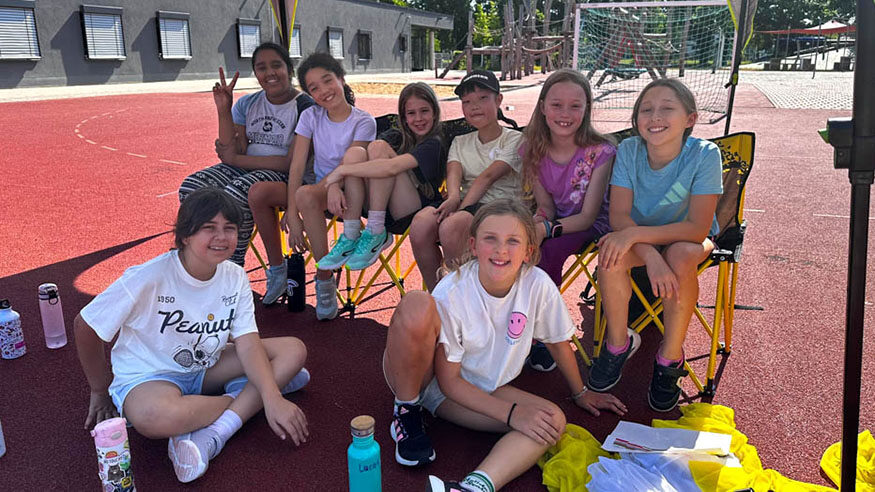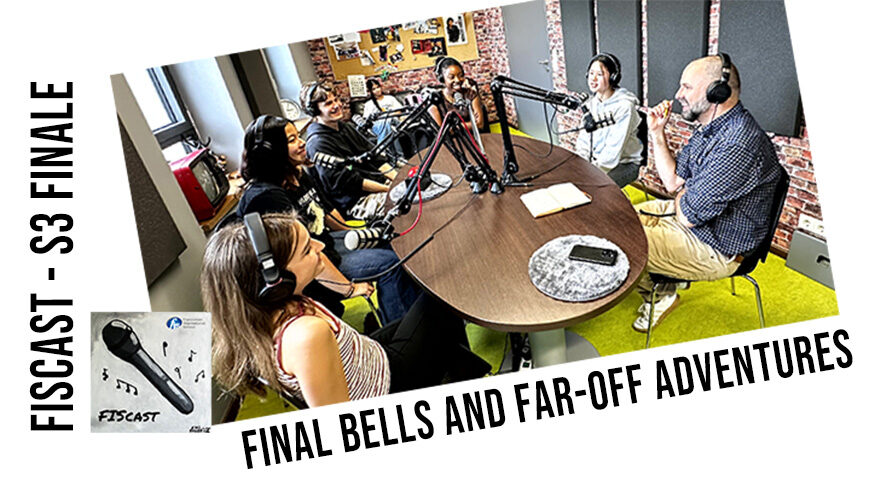The United Nations recognizes February 11 as the International Day of Women and Girls in Science.
We invited our alumna Alexandra Harrison (Cohort 2015) to share her thoughts on the role of female scientists in research. Alexandra is currently pursuing a PhD in Biochemistry at the University of Bristol, with a focus on developing new technologies for CRISPR-based gene editing.
FIS: When did you first become interested in your field? How did science courses at the FIS support you discover this interest?
Alexandra: From a young age, I had a general interest in the sciences, particularly Biology. IB Biology and Chemistry at the FIS, then, allowed this to deepen and convinced me that I wanted to pursue this field at university. In my first years as an undergraduate student, I had the opportunity to take courses across different areas of the biological sciences. This flexibility ultimately enabled me to pinpoint which areas I was particularly passionate about – synthetic biology, genetic engineering, and biotechnology!
FIS: What are some exciting opportunities in science currently? What opportunities arose from the pandemic in your specific area?
Alexandra: Genetic engineering technologies are constantly evolving – not even I can keep up with all the exciting new developments. I cannot wait to see how these will influence the biotechnology industry – particularly gene therapy approaches.
During the pandemic, I had the opportunity to work on SARS-CoV-2 nanobodies – smaller antibodies with several advantageous properties. Other members in my lab were involved with discovering antivirals that lock the virus in an inactive state. And, of course, vaccine development!
FIS: In your opinion, which changes, if any, are needed in the scientific system to be more attractive to women in science and possible future scientists?
Alexandra: At an undergraduate level, the biological sciences attract a lot of women, which is great to see. Unfortunately, this seems to dilute out slightly the deeper you dive into academia – e.g. principal investigator level. I do believe that this is changing and I myself have benefited from schemes designed to support women in STEM. Through a program called “Equate Scotland”, for example, I secured a summer internship at a laboratory in Glasgow, working in biomedical engineering.
FIS: What advice would you give to our students who are only starting to discover their interest in science?
Alexandra: Stay curious! And don’t limit yourself yet. By exploring a wide range of fields, you will find your passion – and this may be different from what you initially envisioned. It might also be good to talk to people within the field and organize short work experiences to get a better taste for what a life in that field truly looks like.
FIS: What would you like to see universities, schools and organizations do to increase girls’ interest in Science programs?
Alexandra: Increase awareness of all the exciting opportunities across different fields and advertise any internship/work experience opportunities.
Thank you to Alexandra for taking the time to share her candid views on the participation of women in Science. We are proud of the tall strides our alumni have been making in various fields and we’re here to celebrate their successes with them.






